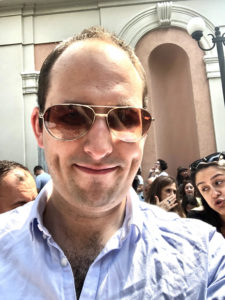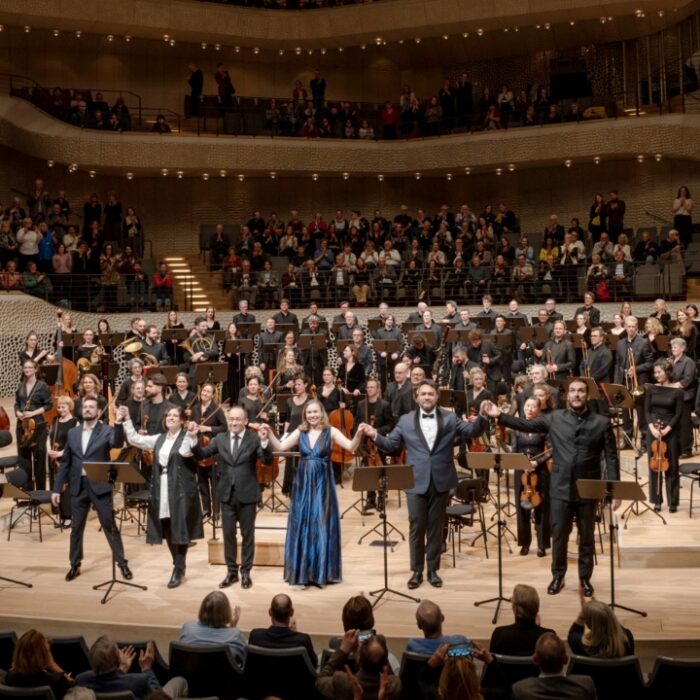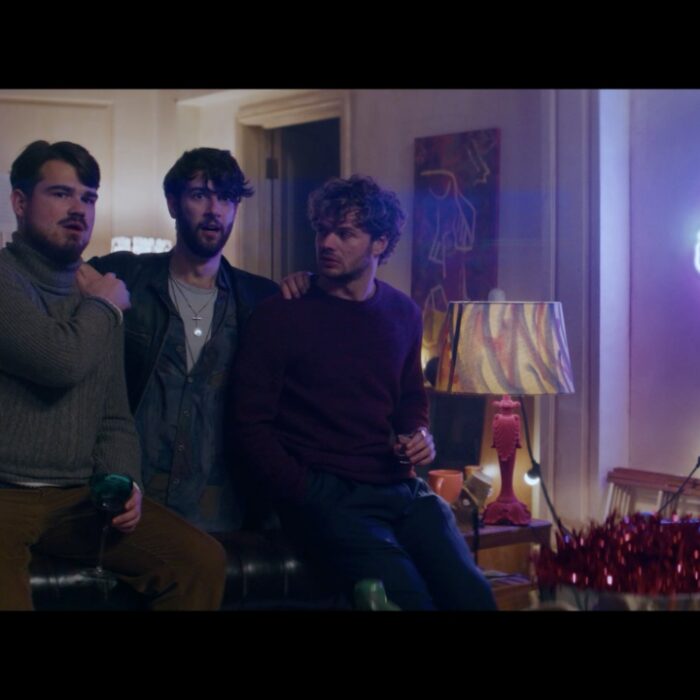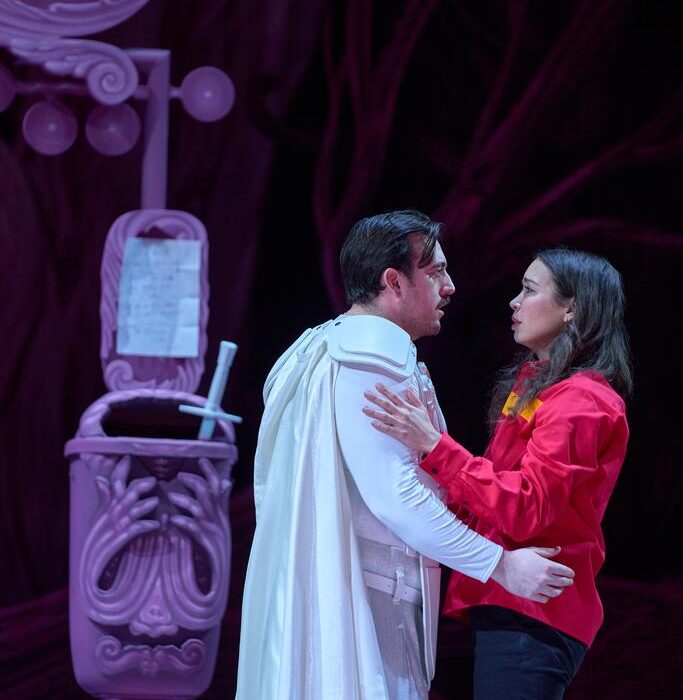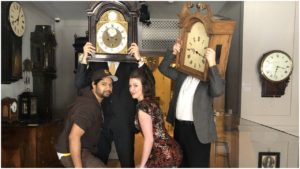
Grange Park Opera Review 2021: L’heure espagnole
A witty, tender new film of Ravel’s one-act farce is a delight
By Benjamin PooreGrange Park Opera has followed their inventive “Owen Wingrave“, a work intended for television, with a filmed realization of Maurice Ravel’s one-act farce “L’heure espagnole,” the story of a clockmaker’s wife who has to shuffle her liaisons like a deck of cards. Director Stephen Medcalf updated the action from eighteenth-century Toledo – given glancing mention through a Goya print on the wall – to contemporary west London, the action taking place in a posh clock shop on Kensington Church Street.
It is an apt lockdown work. Days can pass repetitiously and interminably; month-on-month is wasted away by canceled projects and postponed lives. “L’heure espagnole” holds the mechanical passage of time against the distending and distorting effects our passions and pleasures have on experiencing it, and our attempts to claw it back. Jeffrey Lloyd Roberts’ Torquemada steals a moment of pleasure to gorge on a huge cream cake away from his duty tending the clocks of town – our masters in a world governed by efficiency. Medcalf turns the mule-driver Ramiro into a UPS driver – an especially apposite image of lives determined and serviced by schedule.
Concepción, the wife of Torquemada, is keenly aware of how narrow the window for her liaisons is, and urges speed on the part of her lover; the student poet Gonzalve squanders her offer of a dalliance by proposing to write sonnets and serenades about it instead. “I wasted time, and now doth time waste me”, as Shakespeare has it – but this time it is poetic vanity that gets in the way of a life lived.
Presenting Some Difficulties
The translation presents difficulty. Its double meaning is crucial. “L’heure espagnole” signals both what we would think of as “time” – a set of divisible intervals, like an hour or a minute – and time as what philosophers would call temporality, the lived experience of the flow of future into past, reality into memory: “how they keep the time in Spain”. It is a typically modernist preoccupation – Ravel composed his 1911 opera as Henri Bergson writes his famous disquisitions on time and memory and Marcel Proust the first volumes of “In Search of Lost Time.”
Ravel’s music delights in its own playful artificiality. It is marked by considered textural refinement, exquisitely crafted surfaces, precision-machined ostinati, and knowing invocations of traditional forms (such as in “Le Tombeau de Couperin”, or the jotas, habaneras and malagueñas given special flavor in “L’heure espagnole”). No wonder the exacting craft of the clockmaker attracted meticulous Ravel to the scenario contrived by playwright Franc-Nohain.
The absurd surrealist image the opera manifests in hiding its men inside clocks. Here their faces are superimposed through film over the faces in the distillation of Ravel’s art, blending the manmade with the natural into a strange and unique assembly. This slightly uncanny effect is reflected in Ravel’s approach to vocal writing for the work, which, with the exception of Gonzalve’s parody lyricism, is conversational in character, only ever so slightly lengthened and intensified by their being set to music.
The impression created, conversely, is more evocative of song, with an attendant psychological interiority and focus, in keeping with close-up camera work and the text’s extended, reflective monologues, which linger and hover. That these have the dreamy character of free association, gently probing the surface of feeling and desire, underscores the fact that the opera’s length – fifty minutes – is the same as that of a psychoanalytic session. This introspection can be wistful and searching – Ramgobin’s delivery driver ponders the complexity of women’s wants and wishes – as well as intense and claustrophobic, such as in Concepción’s mid-opera monologue, where “time hangs heavy on my hands” – too short of it while her husband is out, and painfully away that is passing all too quickly.
In this presentation, arranged and performed by Chris Hopkins, we lose, sadly, the dazzling orchestral soundscape and color palette attending the original version, retaining only a whisper of trumpet and the glitter of percussion, as well as ticks and chimes. But on the other hand, this piano-only version feels quite appropriate to the cramped interior of the Kensington shop- Howard Walwyn’s Fine Antique Clocks – where the show was filmed on location.
Fantastic Cast
Ross Ramgobin sang Ramiro with husky tenderness, balancing moments of strength and power with delicacy and warmth; he is deliciously cheeky and playfully coy.
Ashley Riches’ banker Don Iñigo Gomez was capricious and entitled, with Riches bringing power and gravel and richness to the role.
Jeffrey Lloyd Roberts sang a twinkling, gentle Torquemada, a figure of quiet pathos and comic vim – though one who, in the final scene, is able to make a pretty penny out of his wife’s indiscretions.
Elgan Llŷr Thomas was in a comically lustrous voice as Gozalve, extravagant in delivery and sense of line, more entranced by the clocks adorning the walls and his own poetic genius than poor Concepción.
Mezzo Catherine Backhouse gleamed and smoldered by turns as Torquemada’s frustrated wife: “I must smash something”, she explodes, “put porridge in the salad”. This is a taut, compelling little show; its hour-duration ebbs and flows with grace and style.
